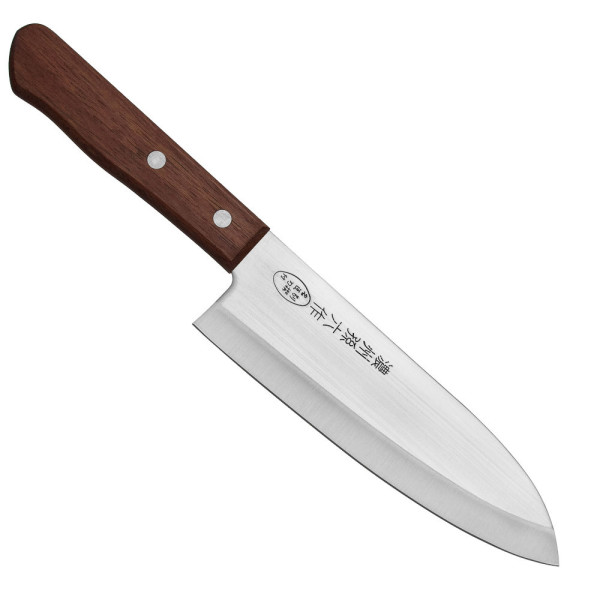
- Availability: 1
- Model: 803717
Satake Tomoko Santoku Japanese kitchen knife 17 cm
This versatile knife is the perfect companion in the kitchen, be it chopping vegetables, slicing meat or even fish. The curved back edge makes chopping easier, while the wide blade can help you pick up cut ingredients. Thanks to the comfortable, raised handle, your fingers never touch the cutting board or the food, so you can use it confidently while cooking.
The origin of the santoku (三德) knife can be traced back to Japan, to the Showa period (1926-1989). Due to the increased consumption of red meat and the popularity of Western food, Japanese kitchen knives had to adapt to the changing environment. The immediate predecessor of the santoku is the bunka knife, which was formed from the fusion of the gyuto and nakiri knives.
The name "santoku" refers to the three main uses of the knife:
Slicing: The santoku knife is excellent for thinly slicing meat, fish and vegetables. The length of the blade is usually between 15-18 cm, which is the ideal size for most raw materials.
Dicing: The straight edge of the santoku blade enables precise dicing.
Chopping: The shape and weight of the blade make it easy to chop vegetables and spices.
The santoku knife is often referred to as the "three virtue knife", referring to its three main functions. The popularity of the knife spread worldwide at the end of the 20th century, and today it is considered one of the basic types of kitchen knives.
Additional parameters
Blade material - U420J2 (Nippon Koshuha) stainless steel
Handle material - natural wood
Hardness - 56 HRC
Total length - 28.5 cm
Blade length - 17 cm
Blade width - 4.6 cm
Blade thickness - about 1.5 mm
Cutting edge design - symmetrical on both sides
Weight - about 95 g




























